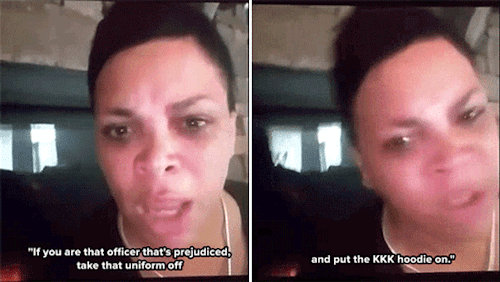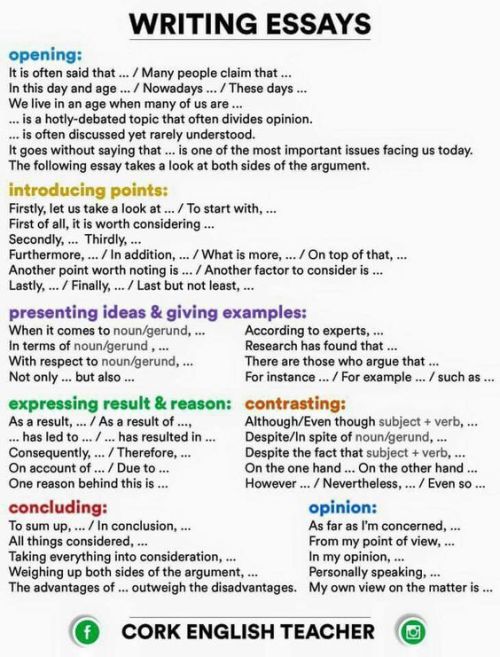This ↑
this ↑










Watch: She has seen a lot but this is what hurts her the most.
More Posts from Moola-of-hula and Others


To help move away from summary and toward ANALYSIS, it’s important to incorporate strong verbs into your writing when discussing the writer’s rhetorical choices. Below is a list of verbs that are considered weak (imply summary) and a list of verbs that are considered strong (imply analysis). Strive to use the stronger verbs in your essays to help push yourself away from summary and toward analysis: ex “The writer flatters…” NOT “The writer says…”
Weak Verbs (Summary):
says
explains
relates
states
goes on to say
shows
tells
this quote shows
Strong Verbs (Analysis):
Argues, admonishes, analyzes, compares, contrasts, defines, demonizes, denigrates, describes, dismisses, enumerate, expounds, emphasizes, establishes, flatters, implies, lionizes, lists, minimizes, narrates, praises, processes, qualifies, questions, ridicules, suggests, supports, trivializes, vilifies, warns
Powerful and Meaningful Verbs to Use in an Analysis (Alternatives to Show):
Acknowledge, Address, Analyze, Apply, Argue, Assert, Augment
Broaden
Calculate, Capitalize, Characterize, Claim, Clarify,Compare, Complicate, Confine, Connect, Consider, Construct, Contradict, Correct, Create, Convince, Critique
Declare, Deduce, Defend, Demonstrate, Deny, Describe, Determine, Differentiate, Disagree, Discard, Discover, Discuss, Dismiss, Distinguish, Duplicate
Elaborate, Emphasize, Employ, Enable, Engage, Enhance, Establish, Evaluate, Exacerbate, Examine, Exclude, Exhibit, Expand, Explain, Exploit, Express, Extend
Facilitate, Feature, Forecast, Formulate, Fracture
Generalize, Group, Guide
Hamper, Hypothesize
Identify, Illuminate, Illustrate, Impair, Implement, Implicate, Imply, Improve, Include, Incorporate, Indicate, Induce, Initiate, Inquire, Instigate, Integrate, Interpret, Intervene, Invert, Isolate
Justify
Locate, Loosen
Maintain, Manifest, Manipulate, Measure, Merge, Minimize, Modify, Monitor
Necessitate, Negate, Nullify
Obscure, Observe, Obtain, Offer, Omit, Optimize, Organize, Outline, Overstate
Persist, Point out, Possess, Predict, Present, Probe, Produce, Promote, Propose, Prove, Provide
Qualify, Quantify, Question
Realize, Recommend, Reconstruct, Redefine, Reduce, Refer, Reference, Refine, Reflect, Refute, Regard, Reject, Relate, Rely, Remove, Repair, Report, Represent, Resolve, Retrieve, Reveal, Revise
Separate, Shape, Signify, Simulate, Solve, Specify, Structure, Suggest, Summarize, Support, Suspend, Sustain
Tailor, Terminate, Testify, Theorize, Translate
Undermine, Understand, Unify, Utilize
Validate, Vary, View, Vindicate
Yield
hey if you guys are looking for something to read LET ME RECOMMEND YOU the Shades of Magic series by V.E. Schwab
like this series is freaking amazing.
it has:
amazing writing that is beautiful without being overwrought
a really hecking good plot with magic and adventure and great worldbuilding
NO LOVE TRIANGLES
all the romances feel organic
amazing antiheroes
there’s rotating main characters and they include a badass fucking lady who is disabled (one eye) and a bisexual prince
AND!! the prince’s bisexuality isn’t a Secret or a Big Plot Point it’s just ‘here he is making out with ladies. now dudes’ but it’s also prominent enough that his romances are featured in the books and not mentioned as an afterthought (looking at you, J.K. Rowling)
the series actaully (imo) gets better as it progresses instead of derailing
THE WRITING IS SO GOOD OKAY
Medical School Interviews
Across the UK hopeful medics will have sent off their applications and are eagerly awaiting for an interview. Considering I was in the same position a literal year ago I thought I would share some advice for the interviews. Unfortunately, I can’t disclose what interview questions I got but I can give some general tips that really helped me.
First, I thought I would give some background to my application. I applied to 4 medical schools that were all MMI so the advice I am about to give is more geared towards MMI style interviews. I was very fortunate to get 3 interviews and 3 offers for medicine.
Look at the Medical Schools website. Each medical school tends to outline the qualities they are looking for at interview on their website. Think of specific examples for each quality and practice how you have used/developed said quality and why this would make you a good doctor.
Stay away from Student Room. The number of people that told me to stay away from student room was enormous and yet I still ignored them and checked. All it does is scare you and makes you panic. It’s not worth the stress at all. Just focus on your application and nobody else’s.
Be professional. Medical schools really value professionalism and teach it throughout medical school. However, there is the expectation for you to have a certain level of professionalism before you enter medical school. Little things such as what you wear can make a big impact. For example, guys tended to wear suits at the interview however it isn’t necessary to as long as you are dressed smart then it is okay. Arrive on time. It looks really bad if you arrive late to your interview and you will also probably be really stressed as well which won’t help at all. If you are going to be late ring the medical school well in advance.
Some interviewers may be mean. I wish someone had told me this. Interviewers are there to test certain skills and therefore may be appear to be really brutal to you. Remember, that is what they are there for, stay calm and prove to them that you can handle it. This is essential as not every patient is going to be compliant and they need to test that you are able to cope with it.
Stay up to date with the news. When I had my interviews, the junior doctor contract was very hot in the news so I read around the topic. However, medical schools expect that of you and will probably not test you about that as it doesn’t really show anything that makes you stand out. But keeping up to date with scientific advancements in the medical field will put you in good stead.
Be honest. I think this is probably the most important tip I have. If you do not know something, then tell them that you don’t know it. The person asking will probably have a lot of expertise on the subject and will be able to tell when you are waffling. A lot of the time they are trying to see if you are brave enough to say you do not know rather than seeing if you actually do know something on that topic. Remember that a responsible doctor is one that stays within their limits and admits that they do not know something. If you are quite competent on the subject, then do talk about it however do not feel pressured to have a conversation with them about it.
So there are all my general tips! I just want to finish with saying that please don’t worry if you mess up a station. MMIs typically have 7/8 stations, you are judged on all the stations not just one, so take a deep breath and smash the other ones. If anyone has any questions regarding interviews just send me a message.
Good luck to everyone applying!
Ways To Describe Someone's Voice
adenoidal (adj): if someone’s voice is adenoidal, some of the sound seems to come through their nose
appealing (adj): an appealing look/voice shows that you want help, approval, or agreement
breathy (adj): with loud breathing noises
brittle (adj): if you speak in a brittle voice, you sound as if you are about to cry
croaky (adj): if someone’s voice sounds croaky, they speak in a low, rough voice that sounds as if they have a sore throat
dead (adj): if someone’s eyes or voice are dead, they feel or show no emotion
disembodied (adj): a disembodied voice comes from someone who you cannot see
flat (adj): spoken in a voice that does not go up and down; this word is often used for describing the speech of people from a particular region
fruity (adj): a fruity voice or laugh is deep and strong in a pleasant way
grating (adj): a grating voice, laugh, or sound is unpleasant and annoying
gravelly (adj): a gravelly voice sounds low and rough
gruff (adj): this voice has a rough, low sound
guttural (adj): a guttural sound is deep and made at the back of your throat
high-pitched (adj): true to its name, a high-pitched voice or sound is very high
hoarse (adj): someone who is hoarse, or has a hoarse voice, speaks in a low, rough voice, usually because their throat is sore
honeyed (adj): honeyed words or a honeyed voice sound very nice, but you cannot trust the person who is speaking
husky (adj): a husky voice is deep and sounds hoarse (as if you have a sore throat), often in an attractive way
low (adj): a low voice is quiet and difficult to hear; also used for describing a deep voice that has a long wavelength
matter-of-fact (adj): usually used if the person speaking knows what they are talking about (or absolutely think they know what they are talking about)
modulated (adj): a modulated voice is controlled and pleasant to listen to
monotonous (adj): this kind of voice is boring and unpleasant due to the fact that it does not change in loudness or become higher/lower
nasal (adj): someone with a nasal voice sounds as if they are speaking through their nose
orotund (adj): an orotund voice is loud and clear
penetrating (adj): a penetrating voice is so high or loud that it makes you slightly uncomfortable
plummy (adj): a plummy voice or way of speaking is considered to be typical of an English person of a high social class; this word shows that you dislike people who speak like this
quietly (adj): in a soft, quiet voice
raucous (adj): a raucous voice or noise is loud and sounds rough
ringing (adj): a ringing voice is very loud and clear
rough (adj): a rough voice is not soft and is unpleasant to listen to
shrill (adj): a shrill voice is very loud, high, and unpleasant
silvery (adj): this voice is clear, light, and pleasant
singsong (adj): if you speak in a singsong voice, your voice rises and falls in a musical way
small (adj): a small voice is quiet
smoky (adj): a smoky voice is sexually attractive in a slightly mysterious way
softly spoken (adj): someone who is softly spoken has a quiet, gentle voice
soft-spoken (adj): speaking or said in a quiet, gentle voice
sotto voce (adj, adv): in a very quiet voice
stentorian (adj): a stentorian voice sounds very loud and severe
strangled (adj): a strangled sound is one that someone stops before they finish making it
strident (adj): this voice is loud and unpleasant
taut (adj): used about something such as a voice that shows someone is nervous or angry
thick (adj): if your voice is thick with an emotion, it sounds less clear than usual because of the emotion
thickly (adv): with a low voice that comes mostly from your throat
thin (adj): a thin voice or sound is high and unpleasant to listen to
throaty (adj): a throaty sound is low and seems to come from deep in your throat
tight (adj): shows that you are nervous or annoyed
toneless (adj): does not express any emotion
tremulous (adj): if your voice is tremulous, it is not steady; for example, because you are afraid or excited
wheezy (adj): a wheezy noise sounds as if it is made by someone who has difficulty breathing
wobbly (adj): if your voice is wobbly, it goes up and down, usually because you are frightened, not confident, or are going to cry
booming (adj): very loud and attention-getting
quavering (adv): if your voice quavers, it is not steady because you are feeling nervous or afraid
a voice like a foghorn: very loud voice
in an undertone: using a quiet voice so that someone cannot hear you
someone’s dulcet tones: the sound of someone’s voice as they speak
-
 an-adhd-infested-nerd liked this · 7 months ago
an-adhd-infested-nerd liked this · 7 months ago -
 orion-archives liked this · 11 months ago
orion-archives liked this · 11 months ago -
 loitrusanegtun liked this · 1 year ago
loitrusanegtun liked this · 1 year ago -
 colfernarvaezwrites liked this · 1 year ago
colfernarvaezwrites liked this · 1 year ago -
 venidel liked this · 1 year ago
venidel liked this · 1 year ago -
 aumih16 liked this · 1 year ago
aumih16 liked this · 1 year ago -
 dominipino liked this · 2 years ago
dominipino liked this · 2 years ago -
 mymusicbias liked this · 2 years ago
mymusicbias liked this · 2 years ago -
 sdog41 reblogged this · 2 years ago
sdog41 reblogged this · 2 years ago -
 holly-hoot436085-blog liked this · 3 years ago
holly-hoot436085-blog liked this · 3 years ago



















